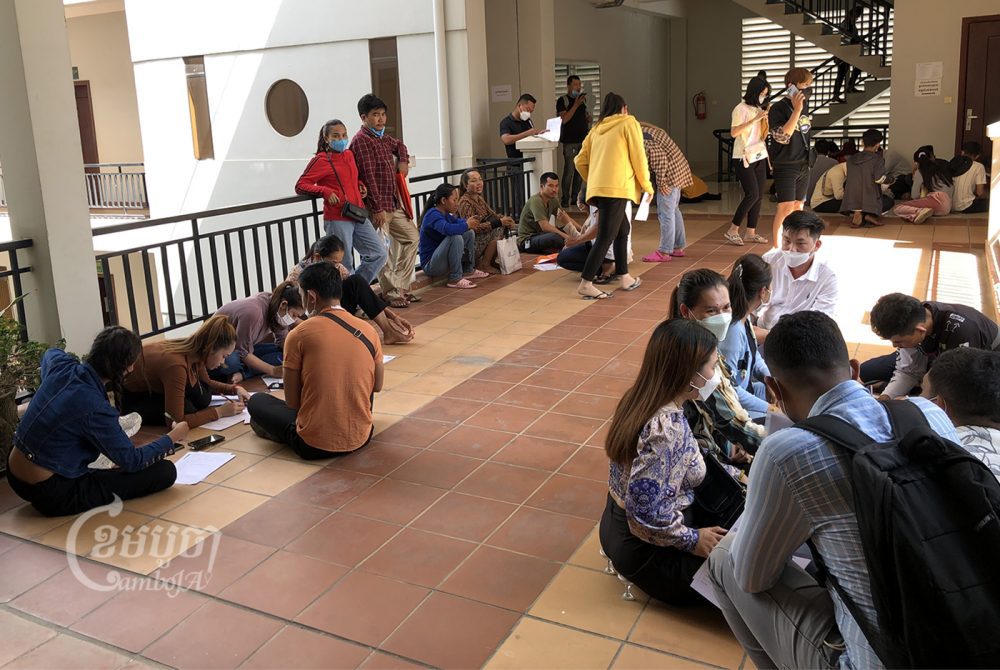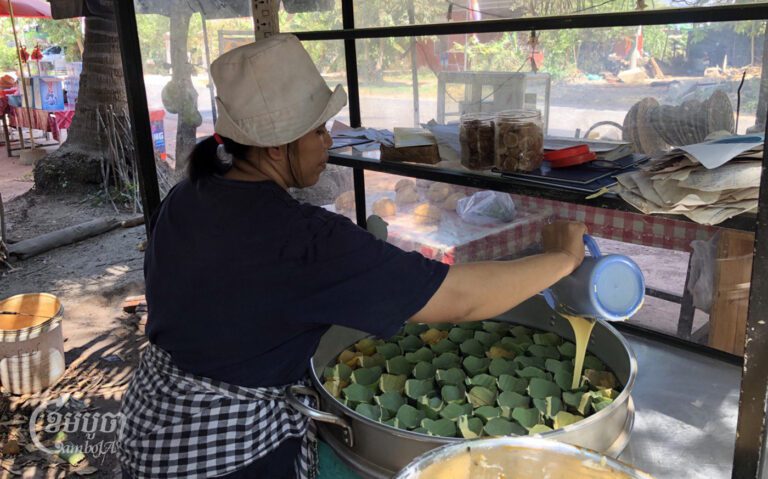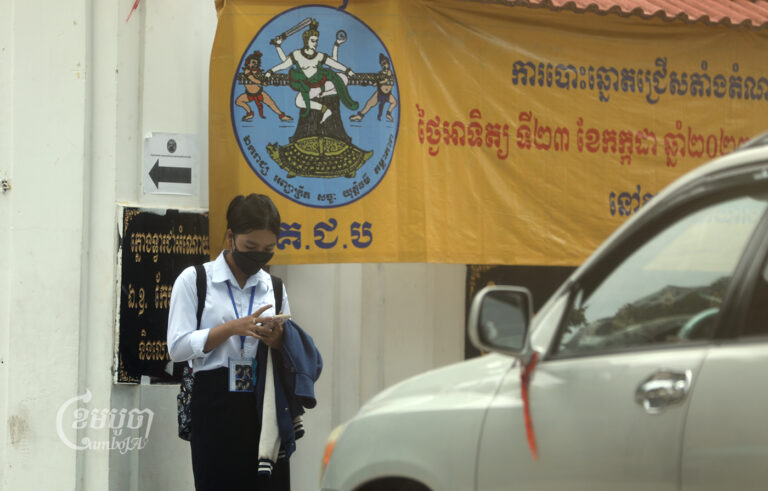Hundreds of small online business owners rushed to register with the Ministry of Commerce this week, fearing that they would face fines if they failed to do so by July 1.
The Ministry of Commerce in March set July 1, 2022, as the deadline for online business registration, saying those who failed to do so could be fined up to 10 million riels based on the e-commerce law.
Chan Sreyroth, who sells cosmetics on Facebook, came to register with the Ministry of Commerce on Wednesday, saying she knew only that she could be fined if her business remains unregistered.
“We want to respect all laws, but please give us proper guidance about the law, we know nothing about it,” she said.
Sreyroth said she was concerned registration could lead to extra tax, which she said would hurt local small online businesses. Already, she said, she pays 10 percent value-added tax (VAT) for advertising and selling products on her Facebook page.
Ministry of Commerce undersecretary of state Pen Sovicheat said the new regulation meant online businesses which have an annual turnover exceeding 250 million riels ($61,500) will be subject to taxes based on revenue.
He said some types of online business, such as those that don’t have a contract between seller and buyer, as well as seasonal family-owned business, are exempted from applying for a license.
The registration fee for the online business license ranges from $50 to $250 and will be valid for two to three years.
San Dane, another online cosmetics seller, said she believed registration was a way to ensure vendors weren’t selling fraudulent products, but was concerned that this would cost her business.
“We are now paying [VAT 10%] to Facebook when boosting to promote our page, our income is too small, unlike big sales businesses,” she said.
While Dane had heard about online business registration long ago, she initially thought the small size of her business meant it was exempt. Only after learning of the fines did she go to register.
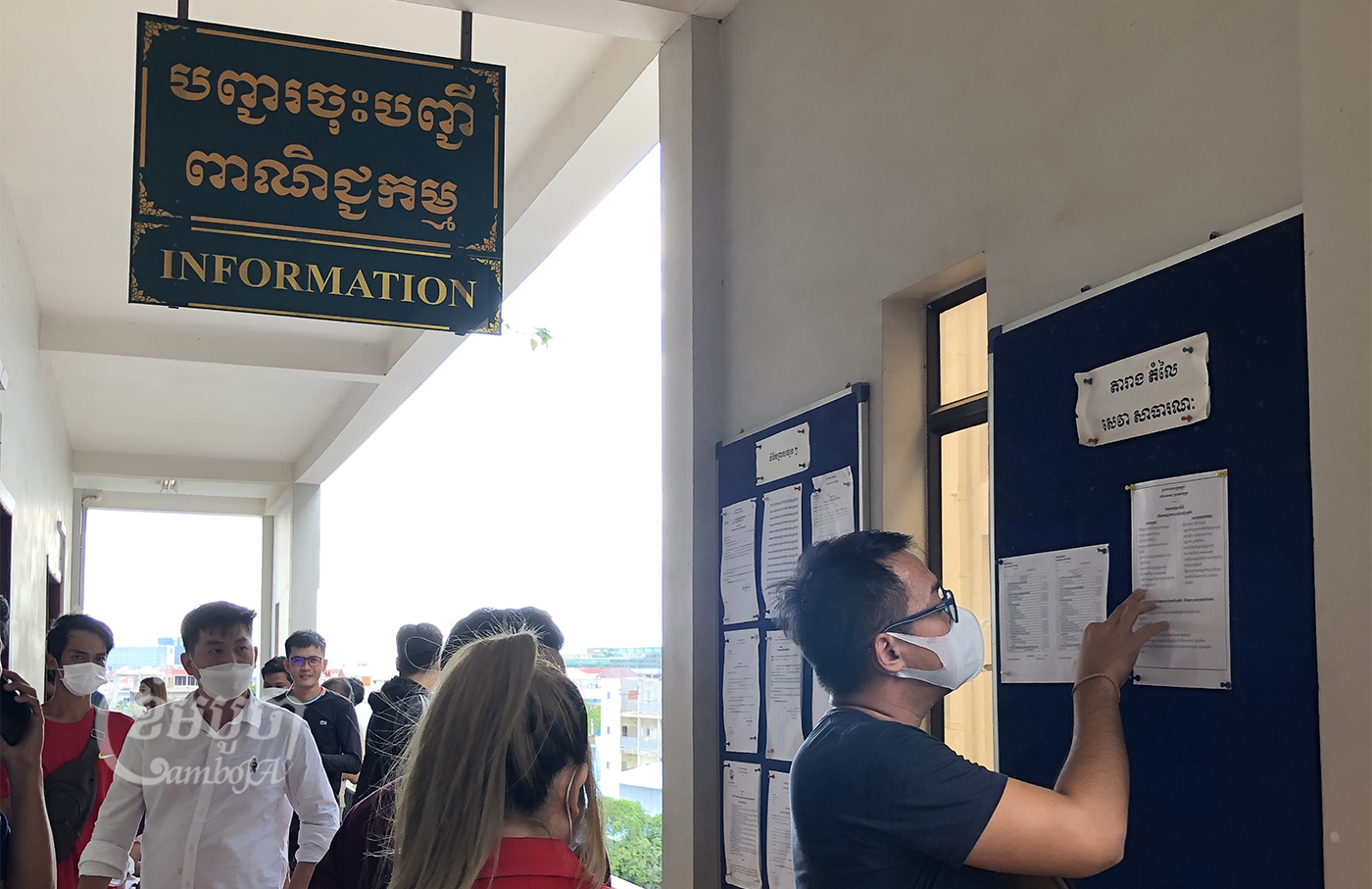
Lim Viriya, co-founder of LM. LIMA Angkor Food Co., Ltd., a local food manufacturer, said the ministry’s announcement did not clearly define “what online business means.”
“If a social network like Facebook, Instagram, or Telegram is defined as an online business, I think it will be difficult for the ministry to control the information in the future, because everything is easy to create, and easy to dissolve too,” she said.
Pech Pisey, executive director of Transparency International Cambodia, said since online business is booming, the government must pay more attention to the taxation of technology companies and large-scale online business.
However, while he recognized the government’s efforts to mobilize tax revenue, he said it was critical there be transparency and accountability in managing the revenue.
“If the government encourages all businesses to pay taxes, they have to be fair,” he said. “Collecting taxes from online sellers is not wrong. But we encourage fair and non-corrupt practices.”
The government has been making more efforts to mobilize tax revenue to fill state coffers, even during the pandemic – ranging from tax on e-commerce and VAT, to capital gains tax on properties.
Starting April 1, the General Department of Taxation (GDT) required that all e-commerce or platforms pay 10 percent of VAT for advertising and selling products on their Facebook page.
Anthony Galliano, a tax expert and group CEO of financial services company Cambodian Investment Management Holding, said the government’s measure is aimed at diversifying the tax categories while reducing tax collection revenue dependency on the existing base.
“I applaud the GDT for implementing the requirement for non-resident e-commerce providers to register for VAT in Cambodia,” he said. “These companies are doing business in Cambodia, earning revenues and profits, and were untaxed, which is not a fair competitive playing field for domestic companies.”
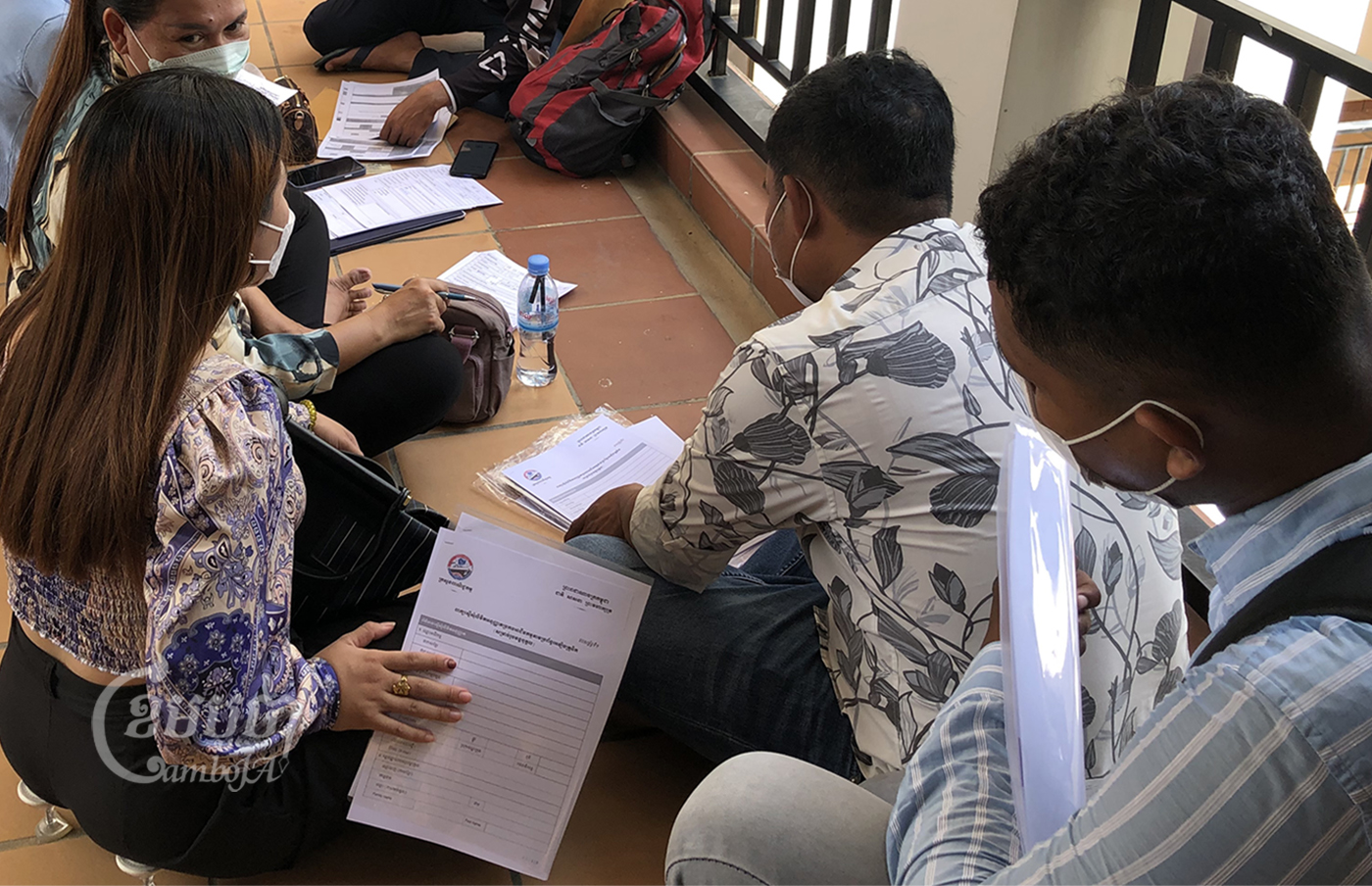
Cambodian’s e-commerce activities are usually conducted via Facebook, the country’s most popular social media platform, which counts more than 17 million internet subscribers in Cambodia as of January 2022.
During the first three months of this year, Cambodia collected $1.2 billion in tax revenue.
According to the GDT, the main sources of revenue is derived from income tax, VAT, specific tax, and tax on salary. Each showed an increase of more than 10 percent compared to the same period last year.
While pushing small businesses to be registered as a means to mobilize tax revenue, the tax authority is struggling to collect from large companies that have been evading taxes for years.
The GDT recently issued notices to many firms to pay overdue taxes after finding that the companies have not paid in full.
On June 28, the GDT issued letters to the owners of two garment and textile companies, Zhong Yin(Cambodia) B textile Co. LtD and Lucky Ly Sunn Long Garment Co Ltd, urging them to pay overdue taxes. The GDT gave the companies 15 days to fulfill their tax obligations, after which they will face legal obligation.


